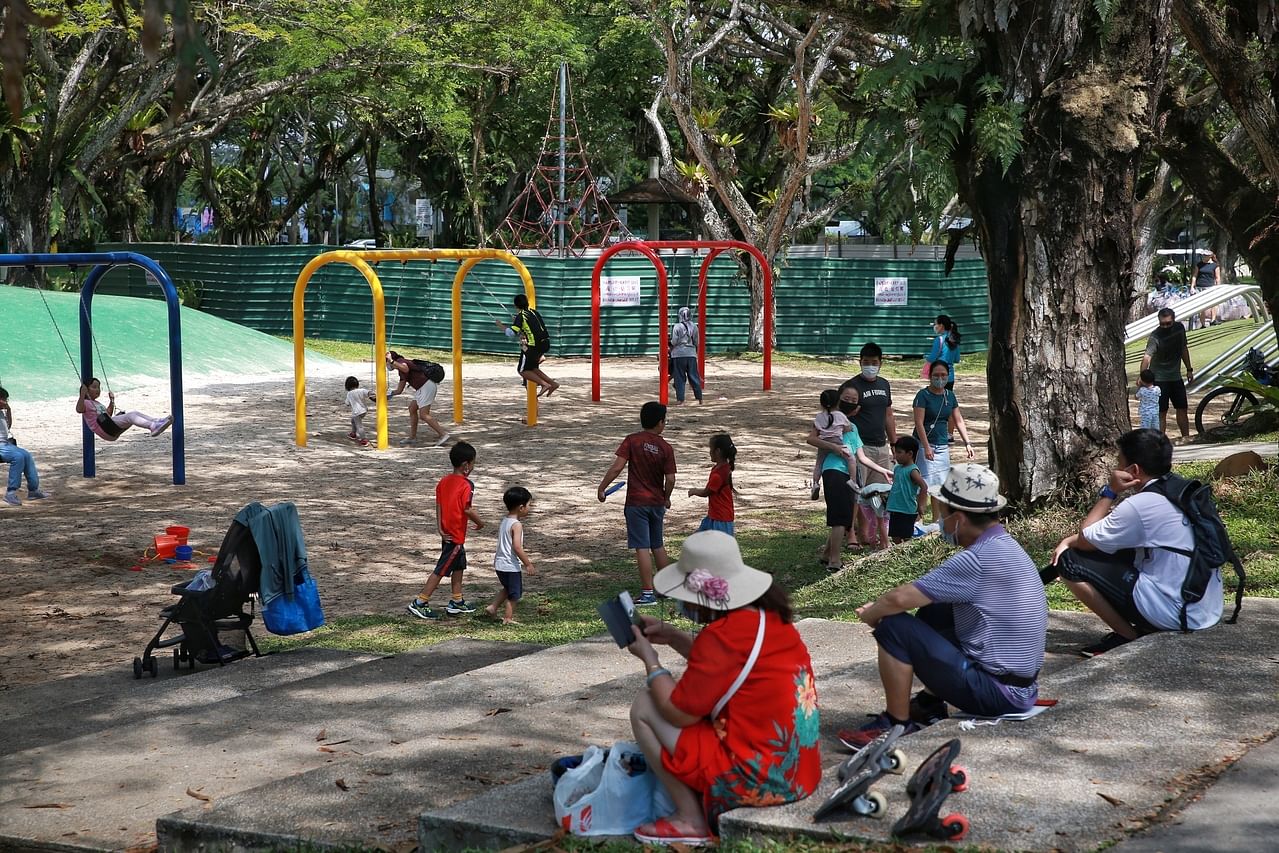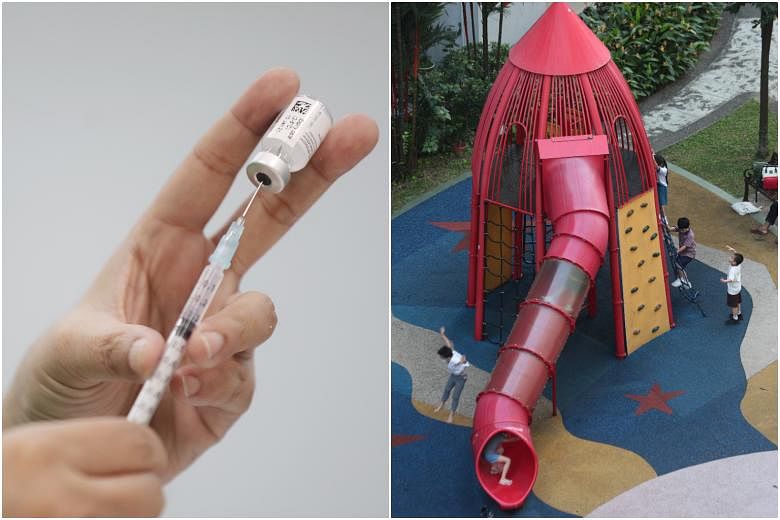SINGAPORE - Clinical trials are under way to approve appropriate vaccines for children under 16, the last group in the country to be offered a jab.
But while experts note that youngsters are not as likely to transmit the virus and are not a major reservoir of infections, the medical profession said that inoculating this cohort is vital for the community to achieve herd immunity.
However, the kind of vaccine that children will receive remains an open question.
The Pfizer-BioNTech jab is not recommended for those under 16, while the Moderna vaccine cannot be approved for those under 18 until more safety and efficacy data is available for both vaccines, noted the Ministry of Health.
Trials have begun for both vaccines in children aged 12 and above, with the Pfizer-BioNTech dose achieving a 100 per cent efficacy rate in 2,260 adolescents aged 12 to 15.
Similarly, Moderna has begun trials in 3,000 people aged 12 to 17, half of whom are getting two shots four weeks apart while the other half are getting a placebo. The results are expected around the middle of the year.
Both vaccine companies have also begun trials on children under 12.
Sinovac's Covid-19 vaccine is said to be safe and able to trigger immune responses among children and adolescents, according to preliminary results from early and mid-stage trials conducted among three to 17-year-olds.
The vaccine has not yet been approved by the Health Sciences Authority, although Singapore has already received around 200,000 doses.
Associate Professor Sylvie Alonso at the National University of Singapore's (NUS) Yong Loo Lin School of Medicine and co-director of the school's Infectious Diseases Translational Research Programme said the human immune system is very immature and not fully functional from birth until around the age of 11 to 12.
"Therefore, for this younger demographic (below the age of 11), efficacy and reactogenicity, which includes local and systemic reactions to the vaccine, may be significantly different from what is observed in adults," she added.
This means the dose or its formulation may have to be adjusted so the vaccine is suitable and optimal for this younger demographic, Prof Alonso noted.
Professor Paul Tambyah, president of the Asia-Pacific Society of Clinical Microbiology, said that children tend to have more severe allergies compared with adults, which could make known side effects of the vaccine, such as allergic reactions, more "dangerous" for them.
He cited a 2018 study that found more cases of food anaphylaxis in children than in adults while cases of drug anaphylaxis were more prevalent in adults than in children.
Prof Tambyah noted, however, that many children have asthma which they "grow out of" and food allergies that tend to fade with age.
"It would be important to understand the risk of severe allergic reactions in children before the widespread roll-out of the vaccine to them," he said.
Vaccinating children for herd immunity
While vaccinating children might raise initial concerns, experts said that doing so will still be necessary to achieve herd immunity.
Professor David Matchar from Duke-NUS Medical School said that around 80 per cent to 90 per cent of the population needs to be immune to the virus in order to prevent a new Covid-19 case from leading to broader transmissions, though this depends on the transmissibility of the virus and the level of interactions between people.
"Children under 16 represent about 12 per cent of the population, and with some older individuals not being vaccinated, it is unlikely that Singapore would reach... herd immunity without (vaccinating) kids," said Prof Matchar.

Professor Teo Yik Ying, dean of the NUS Saw Swee Hock School of Public Health, added that achieving herd immunity does not depend only on the percentage of people vaccinated in the population, "but the type of activities and movement patterns in the community".
"If people-to-people interactions are reduced because of safe management measures... we can achieve herd immunity at a lower rate of vaccination uptake. However, if we are hoping to return to pre-Covid-19 days, then we do need to achieve a much higher vaccination take-up rate."
Prof Alonso said it may be possible that the virus mutates so that it easily infects children who are not vaccinated, however, she noted that this may not be accompanied with increased disease severity.
Prof Matchar added: "In theory, not vaccinating kids could promote the development of new mutations and a more prolonged pandemic among everyone, including adults."
However, this would be the "worst-case scenario" if children are not vaccinated along with adults.
He noted that if vaccination rates are high among adults and the population continues to be on guard through mask-wearing and social distancing, further mutations can be slowed sufficiently to minimise outbreaks.
This could also give time for vaccines to be changed to tackle new mutations.
Then vaccinating children becomes less urgent, he added.


